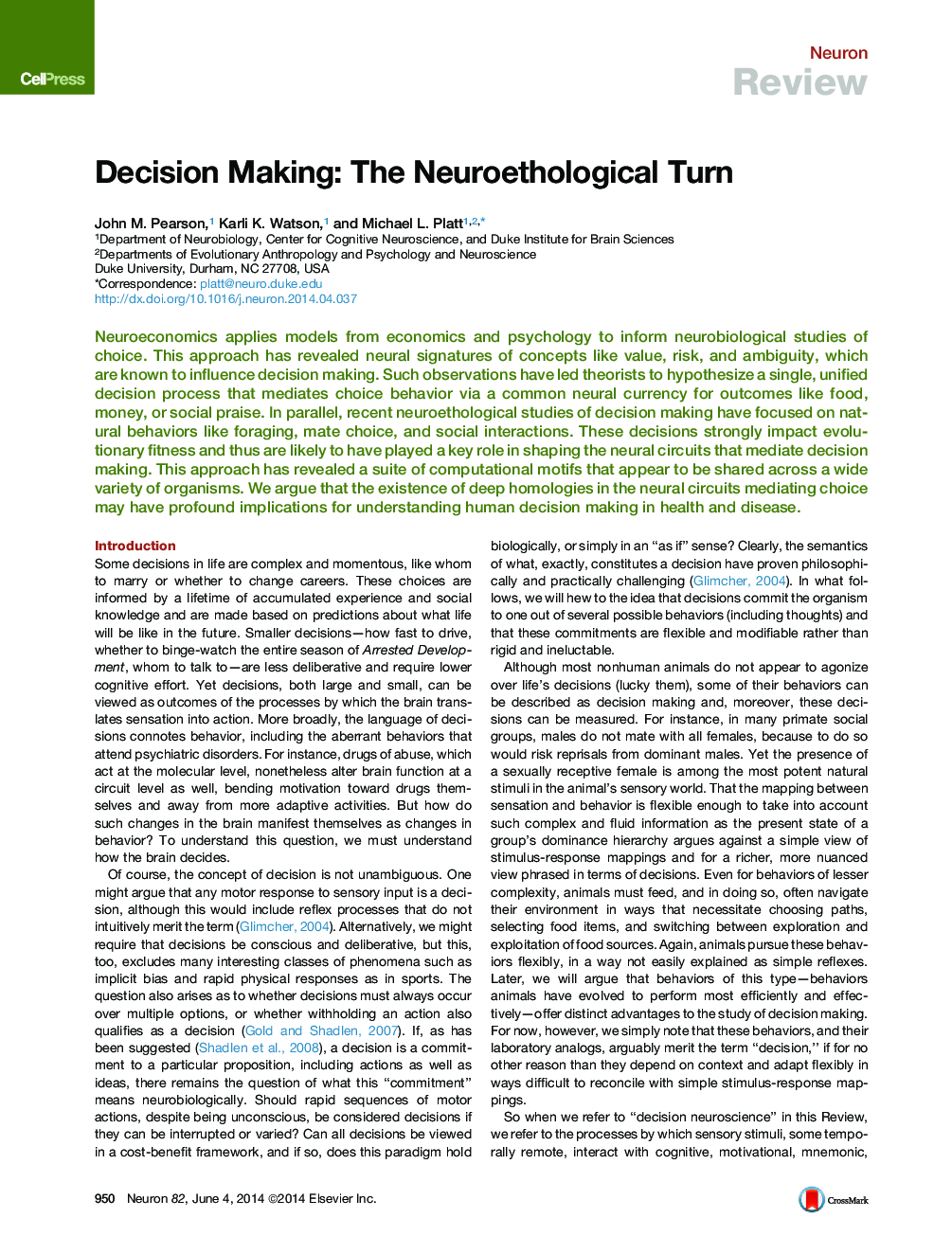| Article ID | Journal | Published Year | Pages | File Type |
|---|---|---|---|---|
| 4321050 | Neuron | 2014 | 16 Pages |
Neuroeconomics applies models from economics and psychology to inform neurobiological studies of choice. This approach has revealed neural signatures of concepts like value, risk, and ambiguity, which are known to influence decision making. Such observations have led theorists to hypothesize a single, unified decision process that mediates choice behavior via a common neural currency for outcomes like food, money, or social praise. In parallel, recent neuroethological studies of decision making have focused on natural behaviors like foraging, mate choice, and social interactions. These decisions strongly impact evolutionary fitness and thus are likely to have played a key role in shaping the neural circuits that mediate decision making. This approach has revealed a suite of computational motifs that appear to be shared across a wide variety of organisms. We argue that the existence of deep homologies in the neural circuits mediating choice may have profound implications for understanding human decision making in health and disease.
